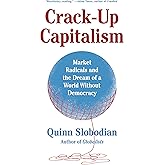
Enjoy fast, free delivery, exclusive deals, and award-winning movies & TV shows with Prime
Try Prime
and start saving today with fast, free delivery
Amazon Prime includes:
Fast, FREE Delivery is available to Prime members. To join, select "Try Amazon Prime and start saving today with Fast, FREE Delivery" below the Add to Cart button.
Amazon Prime members enjoy:- Cardmembers earn 5% Back at Amazon.com with a Prime Credit Card.
- Unlimited Free Two-Day Delivery
- Streaming of thousands of movies and TV shows with limited ads on Prime Video.
- A Kindle book to borrow for free each month - with no due dates
- Listen to over 2 million songs and hundreds of playlists
- Unlimited photo storage with anywhere access
Important: Your credit card will NOT be charged when you start your free trial or if you cancel during the trial period. If you're happy with Amazon Prime, do nothing. At the end of the free trial, your membership will automatically upgrade to a monthly membership.

Download the free Kindle app and start reading Kindle books instantly on your smartphone, tablet, or computer - no Kindle device required.
Read instantly on your browser with Kindle for Web.
Using your mobile phone camera - scan the code below and download the Kindle app.

OK
The Morals of the Market: Human Rights and the Rise of Neoliberalism Paperback – November 5, 2019
Purchase options and add-ons
Drawing on detailed archival research on the parallel histories of human rights and neoliberalism, Jessica Whyte uncovers the place of human rights in neoliberal attempts to develop a moral framework for a market society. In the wake of the Second World War, neoliberals saw demands for new rights to social welfare and self-determination as threats to “civilisation”. Yet, rather than rejecting rights, they developed a distinctive account of human rights as tools to depoliticise civil society, protect private investments and shape liberal subjects.
- Print length288 pages
- LanguageEnglish
- PublisherVerso
- Publication dateNovember 5, 2019
- Dimensions9.16 x 0.71 x 2.31 inches
- ISBN-101786633116
- ISBN-13978-1786633118
The Amazon Book Review
Book recommendations, author interviews, editors' picks, and more. Read it now
Frequently bought together

Customers who bought this item also bought
Editorial Reviews
Review
—Samuel Moyn, author of Not Enough: Human Rights in an Unequal World
"We now know that neoliberals preached less the retreat of state and supranational institutions than their refashioning. What we did not know, and what Jessica Whyte teaches us in her propulsive and probing book, is how central a rethinking of human rights was to the neoliberal project. In her genealogy of market morality, Whyte offers the best history yet of how neoliberals put hierarchical ideas of civilization and race at the heart of their thought from its origins, and how they constructed their version of human rights as a barricade and battering ram against political projects premised on human equality and economic justice."
—Quinn Slobodian, Wellesley College
"This beautifully written book combines historical inquiry, theoretical rigor, and archival research to explore the complicated relationship between neoliberal market morals, imperialism, and human rights politics in the twentieth-century. Whyte’s astonishingly original argument cuts through neoliberal deflection like a scythe offering us insights into human rights essential to imagining a better political future."
—Jeanne Morefield, University of Birmingham
"In this masterful book, Jessica Whyte explodes the common myth that neoliberalism and human rights are independent and incompatible projects. From the economists of the Mont Pèlerin Society to the humanitarians who founded Doctors without Borders, Whyte reveals a sometimes shocking covert history of the hijacking of human rights by neoliberal thinkers who recoded human liberty and dignity as the products of submission to a 'free market' and promoted inequality as a social good. The Morals of the Market is provocative, sobering, and indispensable reading for understanding how we find ourselves in our current state of rotten affairs."
—Joseph Slaughter, author of Human Rights, Inc.
"Jessica Whyte’s new book provides a thorough, devastating and utterly convincing demonstration of the way neoliberal economists and thinkers hijacked once-revolutionary concepts of universal human rights, and turned them into weapons to be used against emancipatory and anti-colonial political projects all over the world. The full moral and political price of our abject surrender to ‘market necessities’ has never been so clearly calculated; anyone who reads this book will see that it’s high time we stopped paying it."
—Peter Hallward, author of The Will of the People and the Struggle for Popular Sovereignty
"[An] illuminating new book."
—Neve Gordon, Los Angeles Review of Books
"Beautifully written, theoretically sophisticated, and excoriating all at the same time."
—Jeanne Morefield, Jacobin
"A compelling, rigorous, deep and passionate study of the morals underpinning human rights and neo-liberal markets"
—Martin Arias-Loyola, Universidad Católica del Norte, Chile, International Affairs
"Perhaps the best book on the subject yet (...) a veritable treasure trove of riches (...) The Morals of the Market will be read and discussed for many years to come because Whyte has produced a rare work which makes interdisciplinary history and philosophy look not only easy, but necessary."
—Matthew McManus, Whitman College, Human Rights Review
"A brilliant new book (...) Engrossing and comprehensively researched, The Morals of the Market sparkles with erudite engagements across modern political theory that contextualises neoliberal thought."
—Ben Huf, Australian Book Review
"A timely contribution to a field that, at least to some, could be facing its twilight. If we are to dislodge human rights of its condition of fellow travellers, it is important to maintain Whyte’s critical approach"
—Daniel Pinheiro Astone, Stockholm University, Social and Legal Studies
"Whyte sets out to tell the ‘story of how neoliberal thinkers made human rights the morals of the market’. On this score Whyte succeeds admirably: through a thorough, well-written, and cogent account of the work of the Mont Pèlerin Society (MPS) and how its leading lights articulated a specifically moral account of the virtues of ‘free’ markets to embed and defend their civilizational ideals."
—Paul O’Connell, SOAS, Legal Form
"Jessica Whyte's new book, The Morals of the Market, demonstrates the kind of scholarship we all aspire to: insightful, thought-provoking, and, above all, accessible and engaging (...) a powerful narrative about how neoliberalism and human rights spread in tandem in a mutually constitutive fashion, implanting capitalist social relations across the world, and how human rights were instrumental in crashing alternative political projects, most notably welfarism and third world aspirations for global economic redistribution"
—Eva Nanopoulos, QMUL, Legal Form
"What precisely is the relation between neoliberalism and human rights? Jessica Whyte’s elegant Morals of the Market tackles this question directly, skillfully, and insightfully (...) Morals of the Market is an excellent book, all the more so for its clarity and its combination of panoramic synthesis and issue-specific analysis"
—Umut Özsu, Legal Form
"An excellent new book (...) The Morals of the Market succeeds on every count. This fascinating book has a lot of new and surprising things to teach us about human rights and neoliberalism, those longstanding and cherished objects of left critical theorization. And the lessons it teaches us about them both are essential if we are to properly understand their historical trajectories (and hence to perform the necessary political work of contesting, reframing, or refusing them in the present) (...) an utterly indispensable reference point for thinking about our contemporary political juncture.”"
—Ben Golder, Contemporary Political Theory
"[a] thought-provoking and engaging study on the relationship between human rights and the rise of neoliberalism."
—Shane Darcy, International Dialogue, A Multidisciplinary Journal of World Affairs
"In an effortless and flowing writing style, Whyte confronts neoliberals with their own appalling words, woven into an astonishing and erudite critical synthesis. The book thus delivers a far-reaching and perceptive critique that fills a long-standing gap between human rights studies and analyses of neoliberalism."
—Kyriaki Pavlidou, Journal of Law and Political Economy
"In The Morals of the Market, Jessica Whyte breaks new ground in the study of neoliberal political thought and human rights. What results from Whyte's study is a striking and more vivid picture of neoliberal and ordoliberal approaches to international economic order as an inherently civilizational and racialized political project. By piecing together the theory and the politics of these intellectuals and by placing them in dialogue with overlooked adversaries, this book makes a significant contribution to the historical and theoretical literature on neoliberalism, law, and political economy."
—William Callison, Perspectives on Politics
"How might such a break [with neoliberalism] occur, and a more transformative conception of human rights be made mainstream? In making visible the morals of the market in so many forms, this book not only opens up the space for this question to be asked but will also undoubtedly enrich the reflections and responses of those who are willing to consider it."
—Daniel Cullen, Birkbeck Law Review
"With the precision of a chronicler but the reasoning of a philosopher, Whyte shows how self-described neoliberals (who at the time occupied key policymaking positions in transnational governance, like sections of the United Nations itself) fought to distinguish, from the melee of demands for rights, a strict baseline of civic and political rights."
—Juan del Nido, Cambridge Journal of Anthropology
About the Author
Product details
- Publisher : Verso (November 5, 2019)
- Language : English
- Paperback : 288 pages
- ISBN-10 : 1786633116
- ISBN-13 : 978-1786633118
- Item Weight : 11.8 ounces
- Dimensions : 9.16 x 0.71 x 2.31 inches
- Best Sellers Rank: #1,271,343 in Books (See Top 100 in Books)
- #1,069 in Human Rights Law (Books)
- #1,075 in Political Economy
- #1,332 in Human Rights (Books)
- Customer Reviews:
About the author

Discover more of the author’s books, see similar authors, read author blogs and more
Customer reviews
Customer Reviews, including Product Star Ratings help customers to learn more about the product and decide whether it is the right product for them.
To calculate the overall star rating and percentage breakdown by star, we don’t use a simple average. Instead, our system considers things like how recent a review is and if the reviewer bought the item on Amazon. It also analyzed reviews to verify trustworthiness.
Learn more how customers reviews work on Amazon-
Top reviews
Top reviews from the United States
There was a problem filtering reviews right now. Please try again later.
Top reviews from other countries
The fragile compromise in international forums linking up civil and political rights with social and economic rights is foundering. Unregulated free markets on a global scale will always favour the more powerful as they do on a national scale. International financial institutions like the IMF and the World Bank have imposed Neoliberal policies on the Global South in their drive to remove any hindrances to the “market” in terms of protective tarifs, state ownership or fiscal policies , resulting in progressive erosion of public provisions for the poorest. Moreover major human rights organisations like Amnesty International and Human Rights Watch in their advocacy for human rights, have dismally failed to address questions of economic inequality and unfair distribution of resources, thus ignoring the main drivers for political unrest and repression in poorer countries. They have focused on the actions of oppressive dictatorships or on the absence of democratic institutions. They remain silent about the Neoliberal ethos dominating international trade conditions , which unfairly disadvantage primary commodity producers unless they successfully organise like OPEC.
There are many other points of interest in the book , in particular the common ideological sources feeding these two influential movements. The author sheds light on the original workings of the UN commission drafting the Universal Declaration of Human rights. Its deliberations in New York somewhat mirrored the contemporary debates of the Neoliberal Economists of Mont Pèlerin society, with the aim of protecting the values of Western Civilisation, after the defeat of Nazi totalitarianism. They too stressed the freedom of speech, thought and expression as well as the necessity of establishing the appropriate institutional framework and rule of law to buttress the competitive market. But both ignored the concerns of the majority of humanity fighting to free itself from the exploitative burdens of colonialism.
The book stresses the institutional failings of the International human rights movements which have fallen in awe to the prevailing Neoliberal dogmas. Social and economic rights have long been ignored, though recently there has been more attention paid to the arbitrary and discriminatory government policies that result in the violation of economic , social and cultural rights. Grass roots movements across the Globe are using the language of human rights to challenge austerity, environmental pollution, expropriation of land for mining and the privatisation of public resources.
In short an enlightening and important essay, highly recommended to those who wish to explore the fraught relationship between the Neoliberal economic policies and the Human rights movement.











